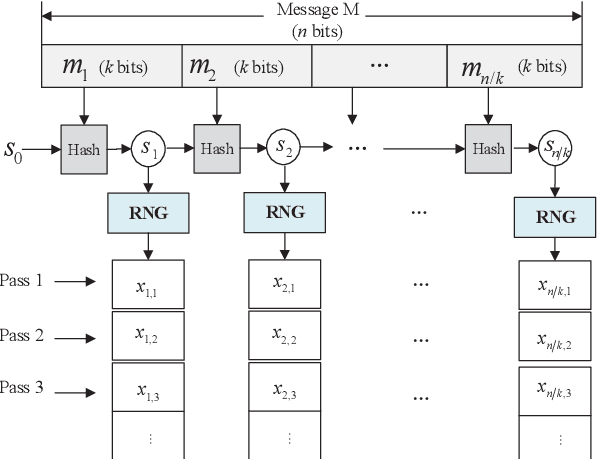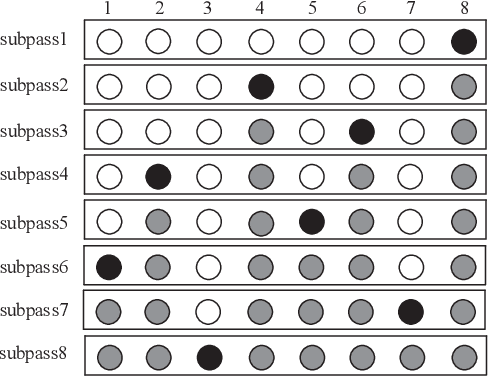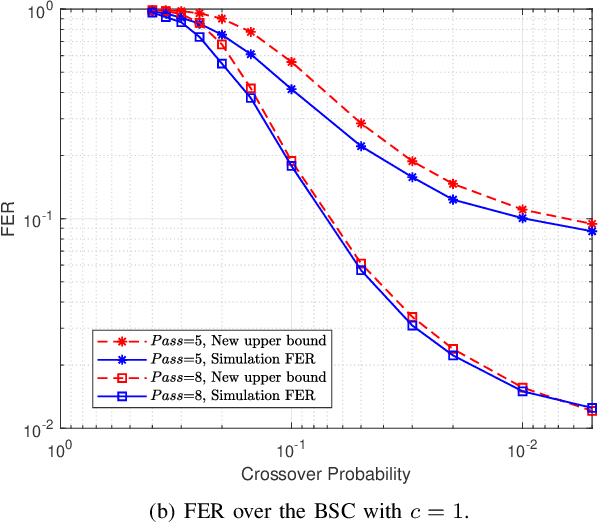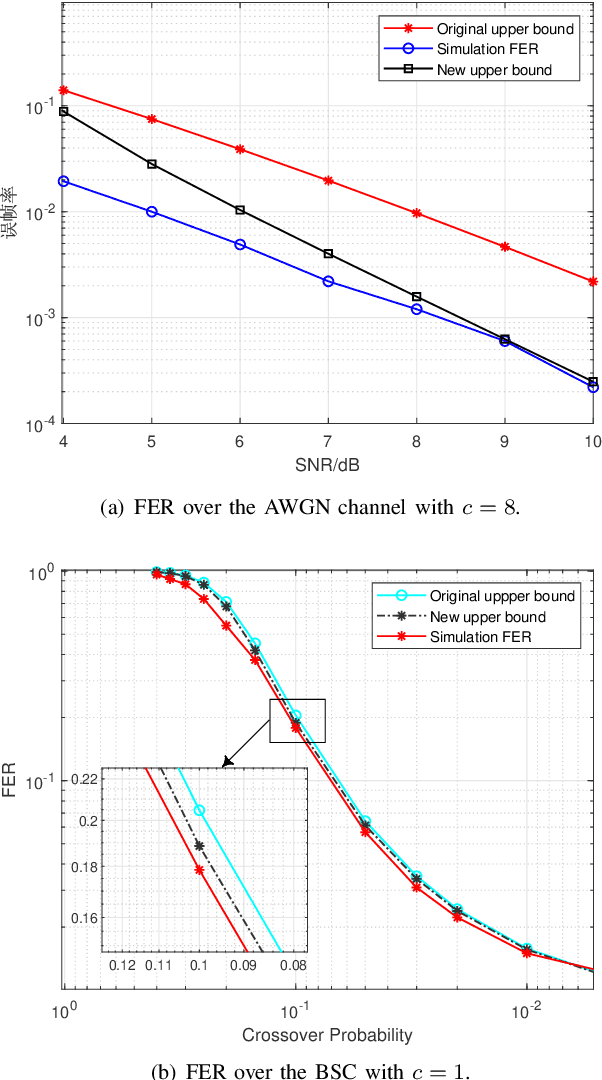Spinal Codes Optimization: Error Probability Analysis and Transmission Scheme Design
Paper and Code
Jan 20, 2021



Spinal codes are known to be capacity achieving over both the additive white Gaussian noise (AWGN) channel and the binary symmetric channel (BSC). Over wireless channels, Spinal encoding can also be regarded as an adaptive-coded-modulation (ACM) technique due to its rateless property, which fits it with mobile communications. Due to lack of tight analysis on error probability of Spinal codes, optimization of transmission scheme using Spinal codes has not been fully explored. In this work, we firstly derive new tight upper bounds of the frame error rate (FER) of Spinal codes for both the AWGN channel and the BSC in the finite block-length (FBL) regime. Based on the derived upper bounds, we then design the optimal transmission scheme. Specifically, we formulate a rate maximization problem as a nonlinear integer programming problem, and solve it by an iterative algorithm for its dual problem. As the optimal solution exhibits an incremental-tail-transmission pattern, we propose an improved transmission scheme for Spinal codes. Moreover, we develop a bubble decoding with memory (BD-M) algorithm to reduce the decoding time complexity without loss of rate performance. The improved transmission scheme at the transmitter and the BD-M algorithm at the receiver jointly constitute an "encoding-decoding" system of Spinal codes. Simulation results demonstrate that it can improve both the rate performance and the decoding throughput of Spinal codes.
 Add to Chrome
Add to Chrome Add to Firefox
Add to Firefox Add to Edge
Add to Edge